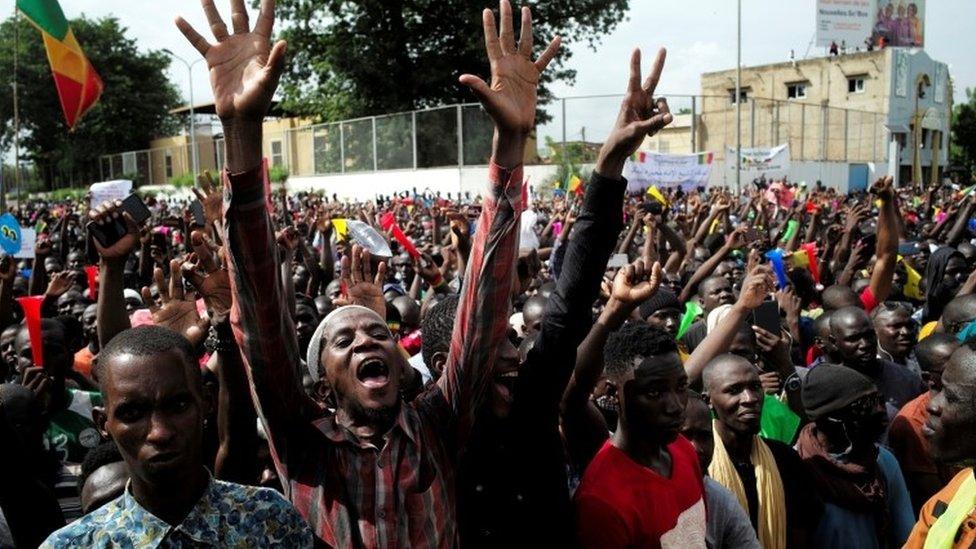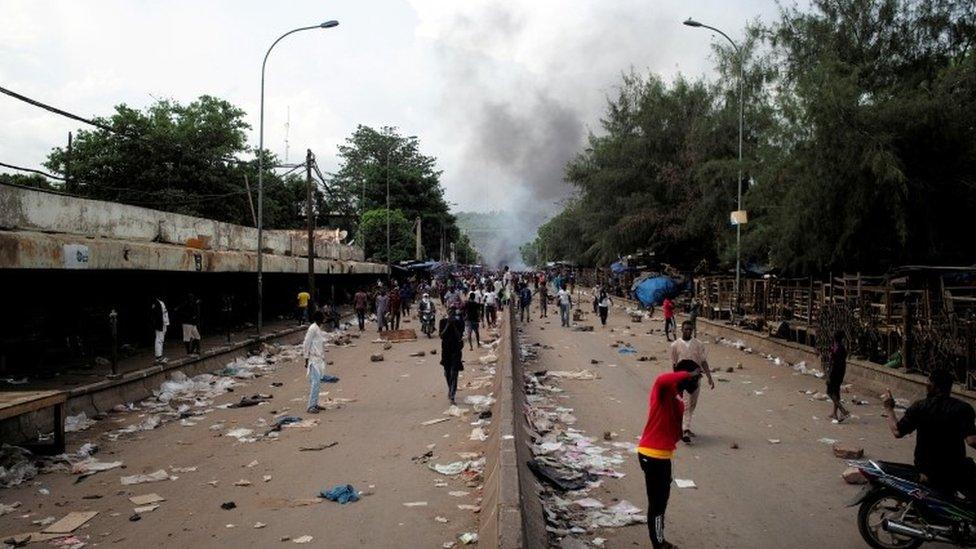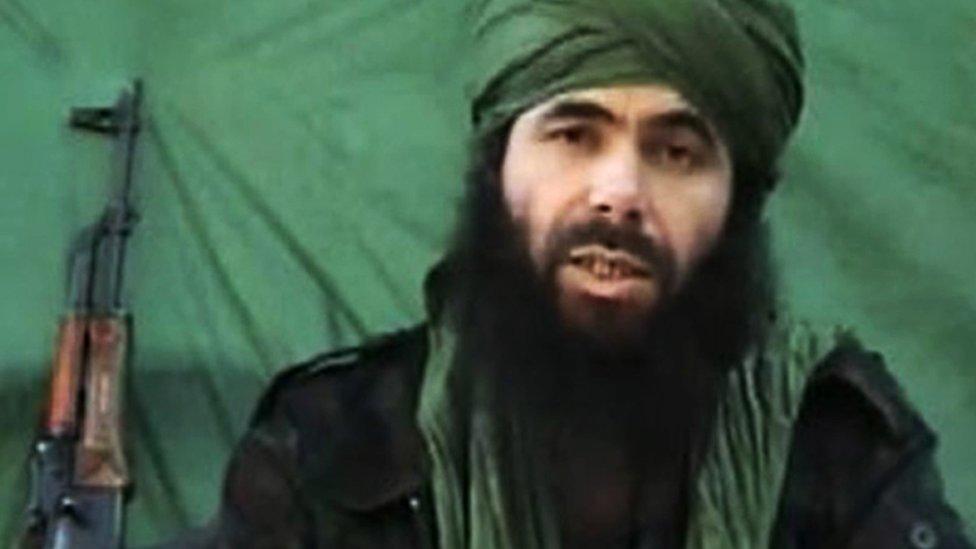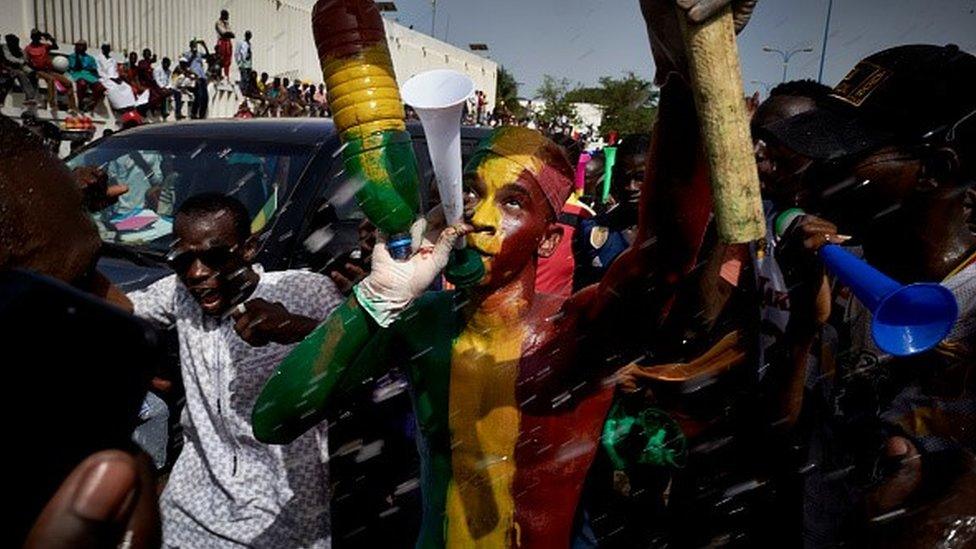Mali protesters occupy national broadcaster
- Published

Opposition supporters have tried to break into the national assembly
Protesters in Mali have forced the state broadcaster off air during large demonstrations in the capital Bamako.
Police have fired shots and used tear gas to disperse the demonstrators - some of whom were trying to break into the national assembly.
This is the third rally in a month demanding that President Ibrahim Boubakar Keita stand down.
There is discontent over a long-running jihadist conflict, an economic crisis and disputed legislative elections.
A new opposition coalition led by the conservative Imam, Mahmoud Dicko, this week said it had dropped its demand for President Keita to step down.
But it is still insisting on further reforms after rejecting concessions from the Malian president including the formation of a unity government.
What's the latest in Mali?
Many thousands of protestors have been out on the streets of Bamako, the BBC's Africa regional editor Will Ross reports.
Some of them briefly made it into the building of the national broadcaster, ORTM, which was then forced off air. Roads were blocked with burning barricades.

This is the third rally in a month where people are calling on President Keita to resign
Some looting has taken place and there are reports of young men trying to break into the national assembly.
Two sources told the Reuters news agency that at least one person was killed outside the assembly.
Why are people protesting?
This demonstration is the third since June.
Protests started after the opposition coalition rejected concessions from President Keita designed to end a political stand-off over a disputed legislative election in March.
The opposition this week said the movement had dropped its demand for President Ibrahim Boubakar Keita to step down. But it still called this protest because it wants more reforms.
Keita secured a second five-year term in 2018 but he has faced increased opposition over a rise in jihadist violence and an economic crisis.
Malians will hope this instability does not play into the hands of the jihadists who are behind the escalating violence in the north and centre of the country.
- Published5 June 2020

- Published19 June 2020
